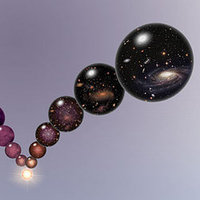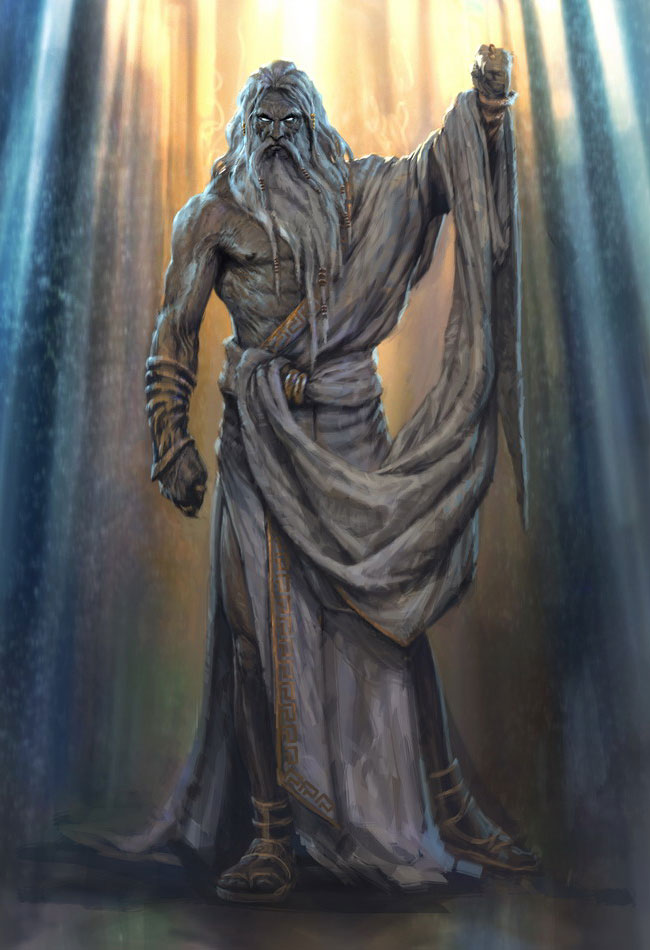Physicist: Sadly, very few photographs survive from the early universe, and even fewer from before the big bang. So the best answers to this question are speculation or (if you’re feeling generous) informed speculation.
Other Big Bangs: Maybe the universe has expansion/collapse cycles? Each cycle would start with a Big Bang, expand, level out, contract, and end with a “Big Crunch” and a “Big Bounce” (the next cycle’s Big Bang). One of the advantages of this theory is that it removes the difficulties that come with the universe being infinitely small at some point (singularities = bad). This is an old theory, but worth mentioning. Since it was first proposed we’ve gotten much better measurements of the universe’s rate of expansion and found that it’s speeding up (not slowing down, as this theory would imply). So it’s pretty unlikely that previous incarnations would have gotten around to crunching. Or this is the last incarnation of the universe. If so, live it up.
Nothing Special: In some versions of M-theory the universe is seen as a four dimensional (3+1 dimensional) “brane” (as in “membrane”) floating around in an even higher dimensional space. If this higher dimensional space were then full of more branes, and should they collide, you’d have a whole lot of energy exploding out of the impact area (in both universes). A really “Big Bang”, as it were. These collisions would need to be very, very rare and/or very, very far apart to get the universe we see today (the result of only one collision, not more). Although the people working on this theory are seriously hot shit, it still seems a little out there. That empty space can collide with other empty space is a little unintuitive. But, you know… String theory.

Colliding universes, infinite energy, and good times. This image stolen from http://media.radiosai.org/Journals/Vol_06/01APR08/04-musings.htm
South of the south pole: I think the best, and also least satisfying, answer is: “It’s the beginning.” With respect to this very question, Hawking was once heard to type “[Asking about time before the universe] would be like asking for a point south of the South Pole. It is not defined.” So, “time” and “space” are strictly native to the universe. Questions that start with “How long before the universe…” and “How far from the universe…” are like “how much paper to blue?”. They don’t make sense. A nice thing about this theory is there’s no longer any reason to ask about “before” or “cause”. This also removes any need for asking questions like “why did the big bang happen when it did?”.
Super-universe: The universe may have “bubbled off” of a much larger universe. One proposed mechanism for this bubbling is black holes. Stuff that falls into black holes is completely isolated from everything outside, and weirdly the time it experiences must be completely independent of the flow of time outside the black hole. So, dude… What if all the matter that falls into a black hole is fed into the big bang of a new universe, that buds off of our own? And what if our universe is just all the stuff that fell into a really big black hole in a universe farther up stream? If the new universes thus created had slightly different laws, then that would lead to universes with more black holes being more likely. Universe evolution! Although interesting, this theory is not being widely pursued.

Perhaps new universes are created by old universes through black holes. These images stolen from: "http://revolution.groeschen.com/2009/05/15/birth-of-a-universe.aspx" and "http://www.onset.unsw.edu.au/issue7/mutiverse.html"
This guy: Hey, you can’t prove God doesn’t exist. Can you? No you can’t. This theory is very popular.











18 Responses to Q: What came before the big bang?